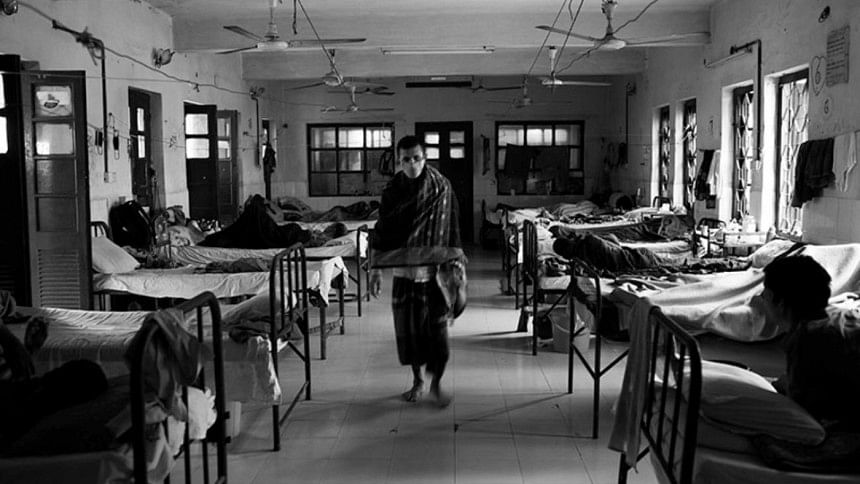The moral and economic case for action to end TB

Today [Wednesday, 26 September], Heads of State will meet at the United Nations for their first-ever meeting dedicated to ending Tuberculosis as a public health threat. This is expected to result in the adoption of an ambitious political statement. This high-level attention is long overdue, but there is a compelling moral and economic case for this to be matched by resources, which are currently sorely lacking.
Over the past two centuries, TB has caused far more deaths than smallpox, malaria, the plague, influenza, cholera and AIDS, combined. This year, the toll from TB surpasses that of HIV/AIDS, making it the planet's most deadly infectious disease.
The development of a vaccine, albeit 97 years ago, and the availability of affordable drugs mean we have the technical ability to eradicate TB—just as we wiped out smallpox and rinderpest, and have nearly ended polio and river blindness.
But instead of making TB history, global dithering has allowed it to become a silent killer of the world's worst-off. Even in poor countries, where the wealthier can afford treatment, it is the poorest, most disconnected and disadvantaged that suffer. Insidiously, TB mostly hits young adults at an age when they have just become parents and are ready to contribute productively to their societies. The result is that families lose incomes, and children lose their parents.
Many poor people understandably postpone a visit to the doctor, because seeking treatment means lost time and wages, along with social stigma. Even when they go to a local, often private doctor, in many countries this doesn't mean they will be timely and correctly diagnosed—since symptoms overlap with many other, less dangerous diseases, resulting in patients in need possibly being prescribed just cough medicine. In the meantime, the infection spreads.
When diagnosis finally occurs, medicine isn't a one-off solution, but a regime that takes half a year or more. Having to keep filling prescriptions (again losing income and time) and taking pills—even after feeling better—is a big ask. Eventually, many people who start treatment just stop—especially as symptoms decrease. This leads to drug-resistant TB, which results in more serious consequences for the patient, and higher costs for society.
A global analysis of the United Nation's Sustainable Development Goals by a team of Nobel laureate economists for the Copenhagen Consensus found that controlling TB is one of the 19 most phenomenal development investments that should be prioritised globally.
They based this conclusion on research by Anna Vassall of London School of Hygiene and Tropical Medicine. She researched the case for investment and concluded that, at a global level, every dollar spent investing in TB control would generate benefits to society worth around USD 43.
If we look at an area with a very high prevalence, it is clear that getting people diagnosed faster, and encouraging adherence to drugs, will not only save lives but will also generate huge economic gains.
India has the greatest TB burden in the world. Recent research for the Copenhagen Consensus and Tata Trusts looking at several Indian states found that huge societal returns could be generated by focusing on TB: In Rajasthan and Andhra Pradesh, each dollar spent on improved TB detection and treatment would generate benefits worth more than USD 100.
The benefit firstly comes from saving many lives. But by treating people faster and more efficiently, we also avoid many more infections—essentially saving future tuberculosis victims from ever getting sick and possibly dying.
Ensuring that effective treatment is initiated as early as possible would mean almost eradicating drug-resistant TB. In India, although just 4 percent of TB cases are drug-resistant they absorb almost half the TB budget. This is the case in all countries with high levels of drug resistant TB.
There is vast untapped potential that can be unlocked by focusing more development resources on TB. Yet, the world's deadliest infectious disease right now gets a paltry USD 1.5 billion in development funding—a full USD 1 billion lower than the amount spent combating malaria, and one-sixth of the amount spent fighting HIV/AIDS.
Including domestic spending by poorer countries, about USD 6.9 billion was spent on TB last year. However, according to the Stop TB Partnership, we need to almost double spending by 2020 to USD 13 billion per year to end TB.
An increase of USD 5.4 billion is less than 4 percent of global development spending. The US spends three times more just on Father's Day gifts.
The attention of world leaders is an excellent first step. But both morally and economically we need to follow that with concrete steps and funding that will finally end TB's heavy burden.
Dr Aaron Motsoaledi is South Africa's Minister of Health and chairman of the Stop TB Partnership Board. Dr Bjorn Lomborg is president of the Copenhagen Consensus Center.





Comments